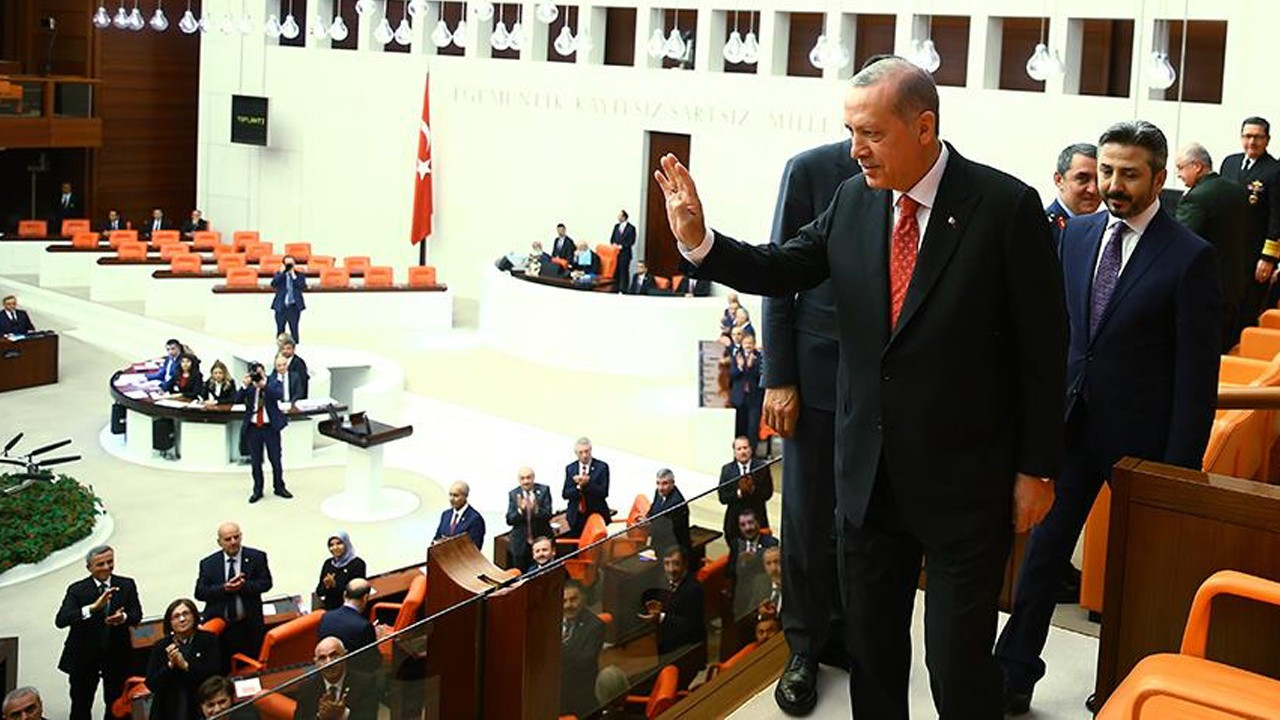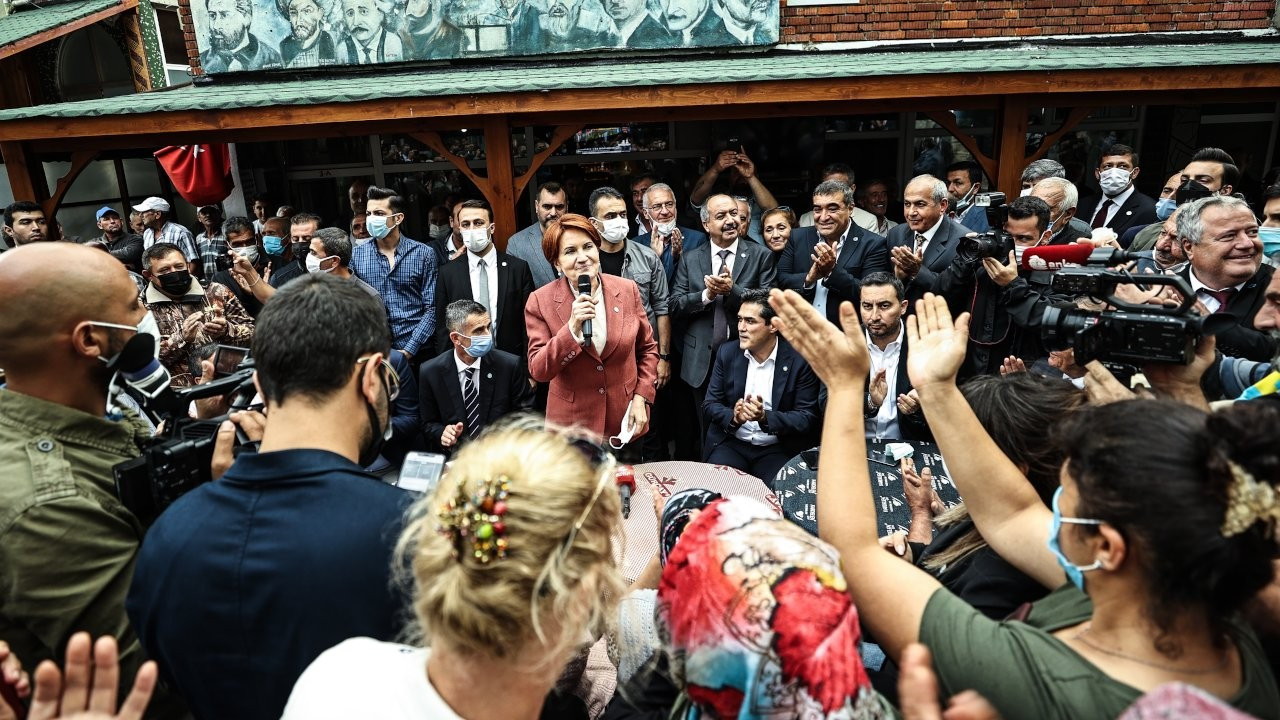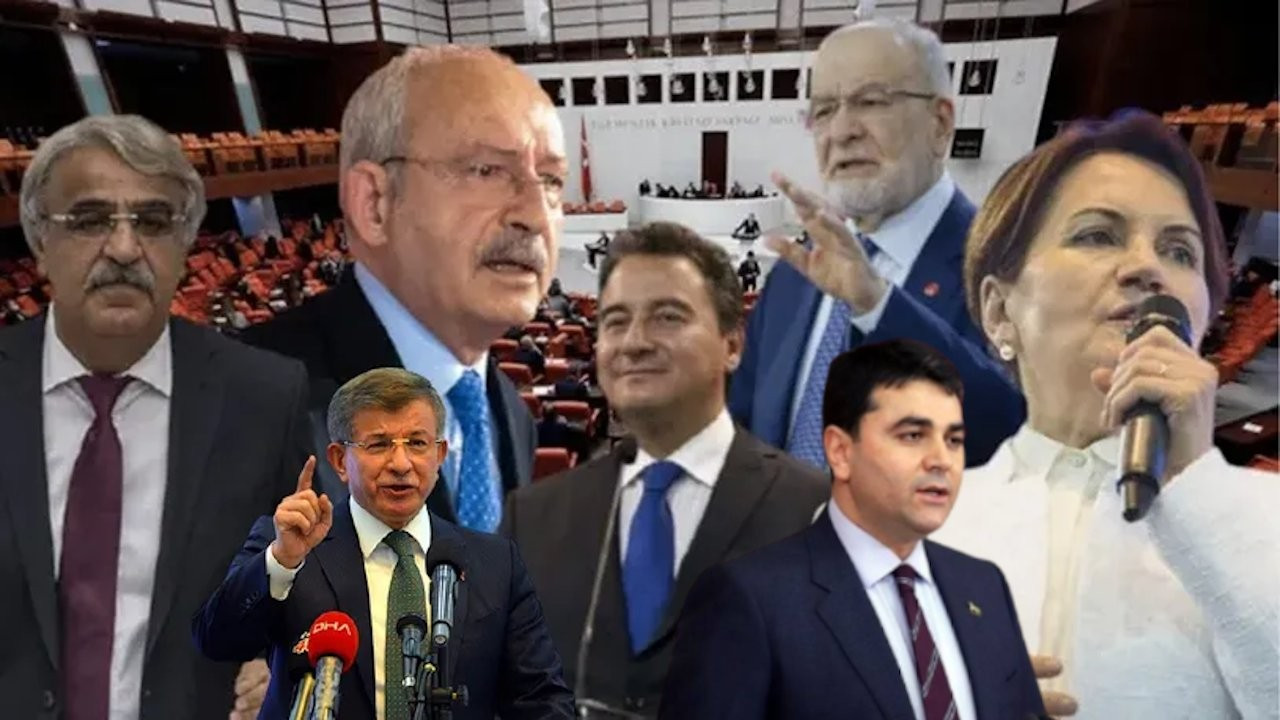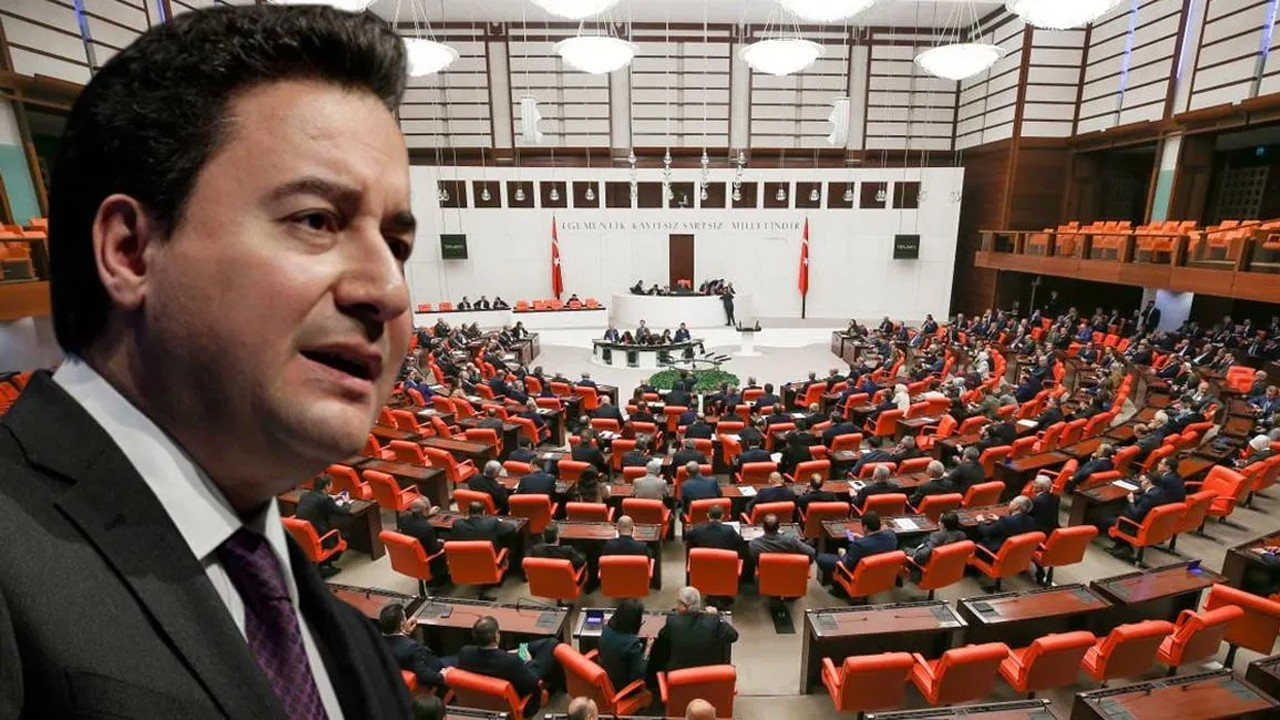Turkey's opposition alliance plans to announce joint declaration soon
The leaders of the İYİ Party and Felicity Party on Sept. 30 held a press conference, during which they said that the opposition alliance was working on a joint declaration setting an outline of the parties' common principles. They also said that they will declare a joint presidential candidate to run against Erdoğan.
Duvar English
Felicity Party (SP) leader Temel Karamollaoğlu on Sept. 30 visited İYİ (Good) Party leader Meral Akşener, during which the two politicians discussed the opposition alliance's common principles for the next elections.
Afterwards, the two leaders held a press conference at the İYİ Party Headquarters, where they said that the Nation Alliance was working to issue a joint declaration which will set an outline of how the parties in the opposition bloc will move together.
The Nation Alliance consists of the main opposition Republican People's Party (CHP), İYİ Party, SP and the Democrat Party (DP). Although the Democracy and Progress Party (DEVA) and the Future Party are not part of the Nation Alliance, they frequently express their support for it. The representatives of these six political parties held a meeting last week that centered around the reimplementation of the parliamentary system.
“A main frame between our parties is being formed. We will establish a system in which political parties do not kick each other beneath the table,” Akşener said.
Last week, Akşener said that she will not run for president but she will race for prime minister in the upcoming elections, in a statement to emphasize the opposition's vow to return to a parliamentary system.
On Sept. 30, Akşener emphasized the opposition bloc's bid to replace the current executive-presidency with the parliamentary system, saying that the name that they will put forward as the joint presidential candidate to run against President Recep Tayyip Erdoğan will win the elections.
Karamollaoğlu said that he “felt the need to celebrate Akşener due to her recent stance, ideas.” He said that it was important of Akşener to “give up on being a presidential candidate.”
“Normally, there are more than one and a half years until the elections, but it seems that the President will go for some amendments in the election laws in parliament once it opens. People are fed up with words and are awaiting action,” Karamollaoğlu said.
Akşener touched upon Erdoğan's meetings with foreign leaders, saying the Turkish president avoided sharing the contents of these talks with the public.
Specifically referring Erdoğan's Sept. 29 meeting with Russian President Vladimir Putin, Akşener said: “Erdoğan has developed a habit recently. He is holding talks [with Putin] in which no one, no other state official is included, and then no one else in this country knows what has been discussed, what happened [at the meetings]. It is just Erdoğan who knows.”
Akşener said that this itself proved Turkey currently being administered under a “one-man rule.” On Sept. 29, Erdoğan and Putin held talks in the Black Sea resort of Sochi, but no press conference was held after the meeting.
Karamollaoğlu said that the main issue was the ruling Justice and Development Party (AKP)'s failure to develop policies that “would solve people's problems.”
“Our biggest problem is that Mr. Erdoğan perceives all complaints as political and rejects them. There is a need for a management that must be regulated. We are not saying that every judge, prosecutor, chief of police in the country does wrong, but if [their mistakes] are not prevented, a problem would arise; this is what is dangerous. The presidential system's problem also stems from here. They are disregarding the objections,” Karamollaoğlu said.
Pro-government daily Sabah reported on Sept. 30 that the AKP has ruled out returning to a parliamentary system and has not included the transition in its draft constitution that will be revealed before the new year.
The AKP reportedly plans to re-introduce the practice of verbal parliamentary inquiries, and ministers will be required to visit parliament regularly to answer deputies' questions.

 Return to parliamentary system ruled out in AKP's draft constitutionPolitics
Return to parliamentary system ruled out in AKP's draft constitutionPolitics Turkish politics heat up after İYİ Party leader's remarks on candidacyPolitics
Turkish politics heat up after İYİ Party leader's remarks on candidacyPolitics Six opposition parties discuss Turkey's return to parliamentary systemPolitics
Six opposition parties discuss Turkey's return to parliamentary systemPolitics Presidential candidate must vow to reinstate parliamentary system, Babacan saysPolitics
Presidential candidate must vow to reinstate parliamentary system, Babacan saysPolitics